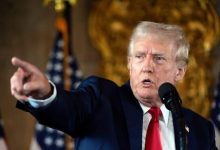No Bitcoin ETF Without Further Crypto Regulation, Says South Korean FSS Chief

No Bitcoin ETF will gain approval in South Korea unless the government introduces new crypto rules, the head of the Financial Supervisory Service (FSS) said on March 5.
The FSS chief Lee Bok-hyun this week struck an optimistic note about possible Bitcoin spot exchange-traded fund approval.
But per the media outlet Nocut News, Lee also tempered his claims with several calls for “caution.”
No Bitcoin ETF If ‘Regulation Isn’t Forthcoming’
Lee was widely reported as claiming on March 5 that he was “one of the regulators who are positive about virtual assets.” He claimed that “there are others who are more wary.”
But Lee also said that certain regulatory conditions still needed to be met before regulators could green-light a crypto-related financial product. He explained:
“To [approve] a Bitcoin spot ETF, we need a system that lets regulators manage and operate virtual assets. Only when this is in place can the [BTC] spot ETF market be opened in South Korea.”
Seoul is under pressure to approve Bitcoin ETFs in line with a landmark move from Washington-based regulators in January.
But in mid-January, anonymous financial investment industry officials said new crypto regulation must wait until the end of next month’s legislative elections.
South Koreans will go to the polls to vote for National Assembly members on April 10.

The Financial Supervisory Service head Lee Bok-hyun speaking in 2023. (Source: MBN News/YouTube)
Crypto Rules ‘Overhaul’ on Its Way?
The same officials stated that a major “overhaul” of crypto law would likely follow the elections.
However, the nature of this legislative change may depend on the makeup of the single-chamber parliament.
President Yoon Seok-yeol’s manifesto promises before his election in 2022 contained a series of pro-crypto industry pledges.
Thus far, he has failed to deliver on many of these – including a revision of the nation’s long-standing ban on domestic cryptoasset issuance.

BTC prices versus the fiat KRW over the past five days. (Source: Google Finance)
Lee, meanwhile, said that regulators were “constrained” by the current legal system, particularly when it comes to Bitcoin ETF approval.
While he stopped short of saying that there would be no Bitcoin ETF green light under his watch, he appeared keen to dampen expectations. Lee said:
“At this stage, we are open to discussing various possibilities. But since there are restrictions under the current Capital Markets Act, we must consider policy direction. We must do so while reviewing whether amendments to legislation are at all possible.”
South Korean stocks are undervalued compared to many of their peers. Now the government is trying to fix the “Korea Discount” by making company boards more accountable to shareholders https://t.co/jJWBb8x1rP
— Bloomberg (@business) March 6, 2024
Next Parliament Will Deal With Crypto Price Manipulation, Says FSS Chief
Lee suggested that further crypto regulations could focus on efforts to stamp out altcoin price manipulation.
Several high-profile altcoin-related court cases have dominated the headlines in recent years.
These range from allegations of coin manipulation at smaller exchanges, as well as large exchanges like Bithumb. Ongoing Terra-related trials are also in the public eye. Lee said:
“There is currently no institutional mechanism to prevent crypto-related price manipulation, theft, or hacking. Once these things are in place and trust in the virtual assets themselves has been established, we can discuss the second round of legislation related to virtual assets. That is when we will see if they can be brought into the financial system.”
Lee concluded that “the next National Assembly” – in other words, the post-election house – would be tasked with creating new crypto regulation.
[Election 2024] How will general election outcome play out for Yoon?https://t.co/4epCw9jIL4
— The Korea Herald 코리아헤럴드 (@TheKoreaHerald) March 4, 2024
This would appear to suggest that the FSS will not make any more attempts to police the crypto sector or approve crypto ETFs until late April at the earliest.





 Bitcoin
Bitcoin  Ethereum
Ethereum  Tether
Tether  Dogecoin
Dogecoin  USDC
USDC  Cardano
Cardano  TRON
TRON  Chainlink
Chainlink  Stellar
Stellar  Hedera
Hedera  Bitcoin Cash
Bitcoin Cash  LEO Token
LEO Token  Litecoin
Litecoin  Cronos
Cronos  Ethereum Classic
Ethereum Classic  Monero
Monero  Dai
Dai  Algorand
Algorand  OKB
OKB  Cosmos Hub
Cosmos Hub  Stacks
Stacks  Theta Network
Theta Network  Gate
Gate  Maker
Maker  KuCoin
KuCoin  Tezos
Tezos  IOTA
IOTA  NEO
NEO  Zcash
Zcash  Polygon
Polygon  Synthetix Network
Synthetix Network  Tether Gold
Tether Gold  TrueUSD
TrueUSD  Dash
Dash  Holo
Holo  Zilliqa
Zilliqa  0x Protocol
0x Protocol  Enjin Coin
Enjin Coin  Qtum
Qtum  Basic Attention
Basic Attention  Siacoin
Siacoin  Ravencoin
Ravencoin  Bitcoin Gold
Bitcoin Gold  Decred
Decred  NEM
NEM  Ontology
Ontology  DigiByte
DigiByte  Nano
Nano  Status
Status  Huobi
Huobi  Hive
Hive  Lisk
Lisk  Waves
Waves  Numeraire
Numeraire  Steem
Steem  Pax Dollar
Pax Dollar  BUSD
BUSD  OMG Network
OMG Network  Ren
Ren  Bitcoin Diamond
Bitcoin Diamond  Bytom
Bytom